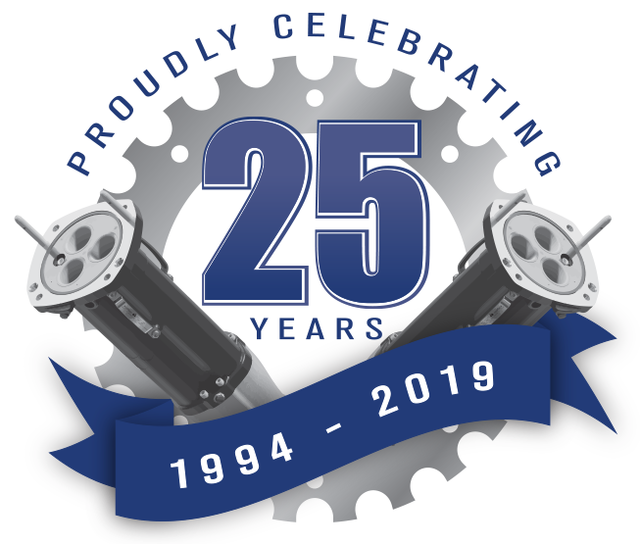SUpply Chain
Debate: should Tesla, Apple & co take on mining?
As Tesla CEO Elon Musk is rumoured to go into the mining business to gain more control over the company's supply chain, we discuss whether this could be a smart move for major technology companies.


Image courtesy of: Ivan Kurmyshov / Shutterstock.com
Tesla CEO Elon Musk is reportedly considering taking the company into the mining business to gain more control over its supply chain and the scalability of raw materials for the production of its electric cars and batteries.
As concerns grow over expected global shortages of key manufacturing components in the future, such a move seems to make sense for major tech companies such as Tesla and Apple who rely heavily on a steady supply as demand for their products grows.
But will - and should - tech companies such as these two get involved in mining projects, or does it make more sense for them to invest in better supply chain monitoring and management, and collaborations with mining partners? Here, our editorial team discusses these questions.
More than half of the country’s coal mines are managed by pro-Russian separatist militia.Credit: DmyTo/Shutterstock.
More than half of the country’s coal mines are managed by pro-Russian separatist militia.
Credit: DmyTo/Shutterstock.
MINE editor Molly Lempriere:
Direct involvement may be the only way to meet supply and ensure sustainability
As demand increases, deposits dwindle and the pressure to prove the sustainability of components grows, tech companies need to ensure the security and environmental credentials of key aspects, such as gold and nickel. In order to truly manage their supply chains, tech companies are going to have to get involved with mining.
According to a recent report by McKinsey, some 1.8 billion people are expected to “join the global consuming class by 2025”, a huge 75% increase from 2010. The mining industry will be hugely affected by this growth, with predicted shortages of a range of metals and minerals including copper, nickel, cobalt and lithium.
For companies to truly take advantage of this growth however, they must meet the changing expectations consumers have. A poll completed by Forbesin 2018 showed that 88% of consumers would like brands to be more environmentally friendly and ethical. As such, it is unsurprising that increasingly companies are starting to investigate not only their sustainability but also that of their supply chain.
“One condition that can slow a company’s growth is poor sustainability performance, as measured in environmental and social impact,” the McKinsey report reads. “To make and sell goods, consumer businesses need affordable, reliable supplies of energy and natural resources, as well as permission from consumers, investors, and regulators to do business. But companies can no longer take those enabling factors for granted.”
The supply chain is essential to maintain sustainability, as a number of large companies have found out to their detriment. One of the best-known examples of this is tech giant Apple, which has come afoul of accusations of child labour and environmental damage. It is no surprise that in recent years the company has sought to clean up its act in a number of ways, collaborating with suppliers to increase their usage of renewable energy, working towards a closed-loop supply chain, and altering designs to reduce its usage of key aspects like aluminium; the iPad Pro enclosures, for example, now require 73% less aluminium overall.
Apple has said it is “deeply committed to the responsible sourcing of materials that go into its products." But can a company really ensure the sustainability of its supplier? With supplies of metals like nickel becoming depleted, companies may have to broaden their supplier pools if they wish to expand, and in doing so they increase the risk of having to rely on supply streams that do not meet their sustainability standards.
Furthermore, monitoring the companies they work with – already a challenge for many companies with international supply chains relying on often sporadic audits – would be increasingly complicated. Companies currently have no real power to make their suppliers pursue sustainable practices; they can only vote with their feet. With growing challenges in the supply of key metals and minerals, that may no longer be an option, further decreasing a company’s ability to enhance sustainability within its supply chain.
As such, it is unsurprising that companies such as Tesla are considering taking on their own mining operations. CEO Elon Musk’s suggestion to stakeholders is that this method would allow the company to truly manage its supply, ensuring that it is not only secure but sustainable.

AusProof is celebrating 25 years of business in Australia in 2019.
MINE feature writer JP Casey:
Tech companies' lack of mining experience could result in significant harm
Direct involvement from technology companies in mining operations could do more harm than good, as large companies run the risk of blundering into countries with complex mining regulations, of which they have little or no experience. Cobalt is of particular interest to manufacturers of mobile phones and vehicles due to its usage in lithium-ion batteries, but nearly two-thirds of the world’s cobalt is mined in the Democratic Republic of Congo (DRC), which has historically struggled with human rights violations and illegal mining.
In response to these issues, the DRC Government introduced a new mining code in 2018 following six years of consideration, and many of the new laws suggest mining in the country is all but incompatible with significant foreign investment. The code states that mining companies must employ predominantly Congolese contractors, and be owned by a majority of Congolese shareholders, all but eliminating the possibility of direct involvement from a technology company based in, say, China or the US. A separate code requires 10% of mining royalties to be paid into a fund to be invested into domestic social projects, which is unlikely to encourage these companies to invest in the first place and will cut into their profits should they choose to do so.
A similar issue involves artisanal and small-scale miners (ASM), whose projects operate outside the law but are so integral to local economies that many governments are unable to crack down on the practice. Ghana, for instance, has emerged as a major gold exporter, with the precious metal accounting for 49% of its exports in 2019, but 85% of its gold mining sector consists of ASM operations.
With around three million people reliant on ASM for their livelihoods in Ghana, the involvement of foreign technology firms threatens these people on two fronts: firstly, the replacement of ASM operation with large-scale foreign-owned operations could reduce the income of a significant number of people; and secondly, if a national government is forced to negotiate with these foreign companies, their attention is diverted from work on developing ASM projects and integrating them into their country’s mining framework, as has been done in South Africa.
In Malaysia, the bauxite industry is similarly delicate. Production of the mineral, the world’s main source of aluminium, leapt from 200,000 tonnes in 2013 to 20 million tonnes by 2015, but the large-scale expansion of mining operations devastated the country’s environment, polluting water sources, decimating large areas of grassland and contributing to increases in respiratory problems and skin rashes. The government responded by banning the practice outright, before repealing the ban earlier this year, creating a muddled and uncertain future for the country’s mining sector, and one that would be a risky investment for both parties should technology companies aim to involve themselves.
Finally, the excessive demand for specific commodities from these technology companies could result in the construction of new, large-scale mining operations, which themselves are environmentally damaging, and would continue a recent trend of vast mines being built.
From Adani’s $11bn Carmichael coal mine in Australia to Anglo American’s $5bn Quellaveco copper mine in Peru, rapidly growing demand for new minerals specifically for the technology sector is encouraging miners to take on increasingly ambitious projects, with local environments often paying the price.

AusProof is celebrating 25 years of business in Australia in 2019.
